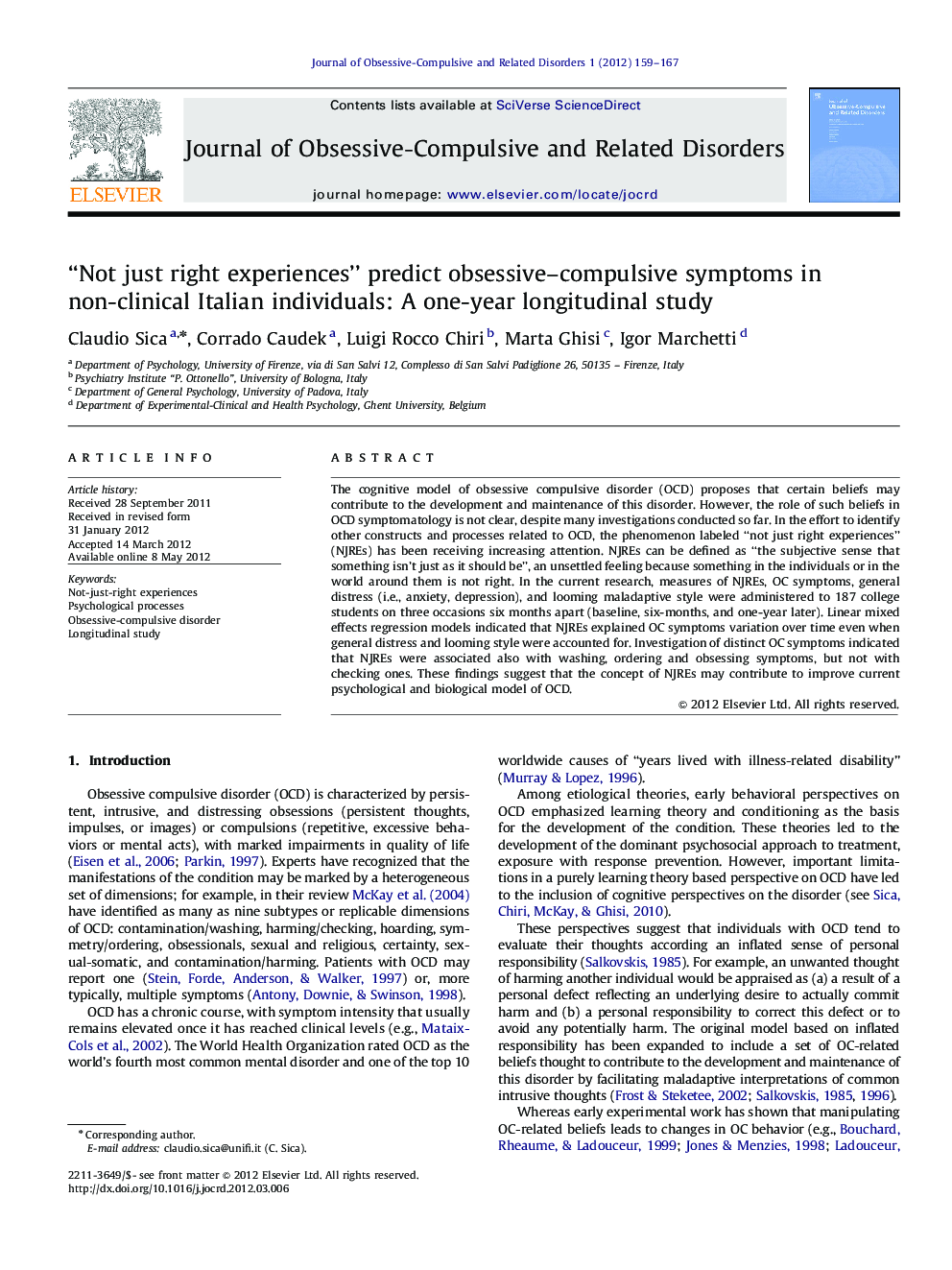| Article ID | Journal | Published Year | Pages | File Type |
|---|---|---|---|---|
| 912343 | Journal of Obsessive-Compulsive and Related Disorders | 2012 | 9 Pages |
The cognitive model of obsessive compulsive disorder (OCD) proposes that certain beliefs may contribute to the development and maintenance of this disorder. However, the role of such beliefs in OCD symptomatology is not clear, despite many investigations conducted so far. In the effort to identify other constructs and processes related to OCD, the phenomenon labeled “not just right experiences” (NJREs) has been receiving increasing attention. NJREs can be defined as “the subjective sense that something isn't just as it should be”, an unsettled feeling because something in the individuals or in the world around them is not right. In the current research, measures of NJREs, OC symptoms, general distress (i.e., anxiety, depression), and looming maladaptive style were administered to 187 college students on three occasions six months apart (baseline, six-months, and one-year later). Linear mixed effects regression models indicated that NJREs explained OC symptoms variation over time even when general distress and looming style were accounted for. Investigation of distinct OC symptoms indicated that NJREs were associated also with washing, ordering and obsessing symptoms, but not with checking ones. These findings suggest that the concept of NJREs may contribute to improve current psychological and biological model of OCD.
► The role of NJREs in OCD appears promising both from a theoretical and empirical perspective. ► We tested whether NJREs severity would explain OC symptoms variation over time. ► Linear mixed effects models indicated that NJREs explained OC symptoms variation over time. ► NJREs were associated also with washing, ordering and obsessing symptoms. ► The concept of NJREs may contribute to improve current psychological and biological models of OCD.
